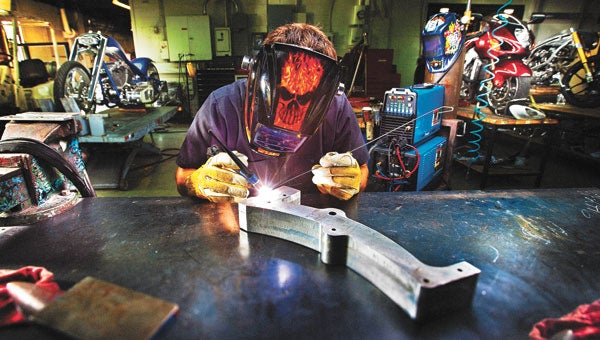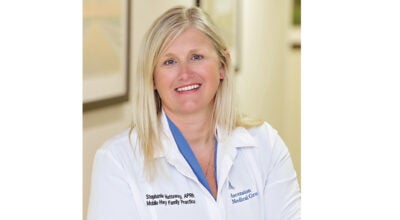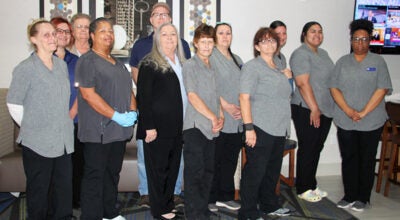Weaver: Speak out, save ag in Opp
Published 12:10 am Friday, August 8, 2014
Last month, the Opp City Board of Education discussed the need to offer vocational classes, in light of many opportunities available through dual enrollment at LBWCC.
Retired vocational/ag teacher Tracy Weaver spoke to the board in favor of keeping the program, and hiring a teacher to fill the vacancy.
At that meeting, both board president Rothel Moody and Opp City Schools superintendent Michael Smithart stated that the board was taking the measure under consideration, and a decision to keep or eliminate the program had yet to be made.
Many in the Opp community, including Weaver’s son, Andrew, would like to see the program continue.
Andrew Weaver took to social media over the the past week, asking former students who were “positively impacted by the ag program at OHS to take time out of your schedule and talk to a board of education member or share your story.”
Weaver said he felt that former ag students could be able to persuade the board to keep what he called a beneficial program alive.
He told The Star-News there are several reasons why he chose to speak out against the potential termination of the ag program, but said that kids are the main reason.
“I feel that the kids who are not interested or do not have the means to pursue a four-year college degree are being done a great injustice by not having the opportunity to participate in ag,” he said. “Ag and other vocational programs offer kids a foundation that is needed to be successful, productive members of the work force. In my opinion, the basics for any trade occupation are covered in ag/vocational classes.”
Weaver cited jobs that are impacted by ag classes in the county, including farming, electrical work, metal fabrication, machinists, linemen, general contractors, and more.
“Where do you think they got their start,” Weaver said. “As for myself, the basics I have learned in ag and horticulture have carried me further than I could imagine.”
Weaver said he chose to attend LBWCC and earned a welding certification. He now works in the offshore industry, but said the knowledge and skills learned in the OHS ag program gave him his foundation.
“As I started my career, I depended on the skills I had acquired in ag,” he said. “Knowing how to use tools, read a measuring tape, operate machinery, weld, etc., gave me a huge advantage over other employees. I have been in the oilfield for eight years now and have earned the position of subsea engineer. In this position and all other positions I have held, I utilized techniques that were learned in ag and horticulture.”
Weaver said he understands that not all students desire to work in the career fields he has described, but he doesn’t want those who wish to pursue these occupations to be robbed of the opportunities to get the foundational skills they need to succeed.
At the July meeting, Smithart said the classes offered at OHS, for the most part, are offered at the college at no tuition and no costs for books to start a career track as a sophomore.
“It’s the board’s call, but my mindset is let’s offer something they can’t get somewhere else,” he said.
Smithart also stated that the majority of students at OHS were showing interest in subjects such as graphic design and social work.
This week, Smithart said a decision still has not been made on the vocational programs, but the board is looking at all the data.
“We are going to look to see if we can tailor our curriculum to meet our students’ needs,” he said. “We want to make sure it facilitates the local economy and helps it grow.”
Smithart did clarify that the board has never stated that canceling the ag program would be in the best interest of its students.





